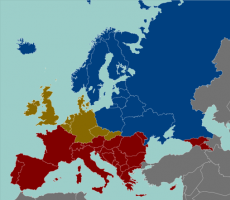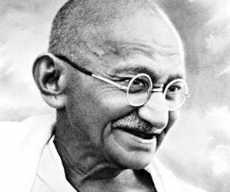
Email: stella@papersnail.co.uk
Total Article : 28
About Me:Sixth form student studying Politics, Biology and Psychology. I'm interested in a range of topics such as music, current affairs, women's issues and world politics.

However, nationalism takes many forms that are progressive and forward-looking. One strand of nationalism that subscribes to this is liberal nationalism. Liberal nationalists strongly support sovereign independence of nation-states; to achieve this they propose an overthrow of the old world order of foreign domination, empires and colonial powers and replacement with independent nations, entitled to liberty, rights and self-determination. An example of this progressive liberal nationalist thinking is Woodrow Wilson’s response to Europe following World War I. Wilson argued for an overhaul of traditional European autocracies and the implementation of modern, popularly elected democracies like that of the United States.
Liberal nationalists seek to reorder international politics also. This reordering of international politics manifests itself in liberal nationalism by the goal of achieving a world of independent states. Liberal nationalists hold progressive ideas in terms of achieving this goal; they seek brotherhood between independent nations, which can be achieved by international treaties or organisations such as the United Nations. Liberal nationalists, however, oppose foreign domination of states, as this infringes on the liberal value of individual freedom.

Another way in which nationalism can be seen to be progressive and forward looking as opposed to looking to the past is the anti-colonial nationalist quest for independence. Like liberal nationalists, anti-colonial nationalists value sovereign independence highly, except unlike liberal nationalists, anti-colonial nationalists focus on the independence of their own country – they do not seek a ‘world of independent states’ necessarily. The anti-colonial quest for independence is forward-looking because it often involves armed struggle or violent revolution. For example, after World War II, there was a violent nationalist revolution in Algeria against French imperial powers, which lasted eight years from 1954 to 1962. Nationalists in former colonies also often emphasise the development of new, forward-looking non-European models of politics, to distance themselves from the western political traditions, which have reigned them for so long. An example of this is Gandhi’s hybrid political order, which combined Indian nationalism with Hinduism, following India’s independence from imperialism.
To conclude, nationalism takes many forms, some which look to the past with nostalgia and even pretence (such as expansionist and conservative nationalism), and some which look to the future with ambition and zeal, such as anti-colonial or liberal nationalism. Both anti-colonial and liberal nationalists look to the future in the sense that they strive for a new order of independent states and new political ideas such as the hybrid form of government seen in India following its independence. It could be said that all forms of nationalism look to the past as nationalism is innately focused on the historic and traditional value of nations – in this sense, all forms of nationalism seek to reconcile the future with the legacy of the past.
Image Credits: http://wikitravel.org/en/Europe
http://goldenageofgaia.com/2014/06/05/in-the-service-of-ascension-part-13/mahatma-gandhi/

0 Comment:
Be the first one to comment on this article.